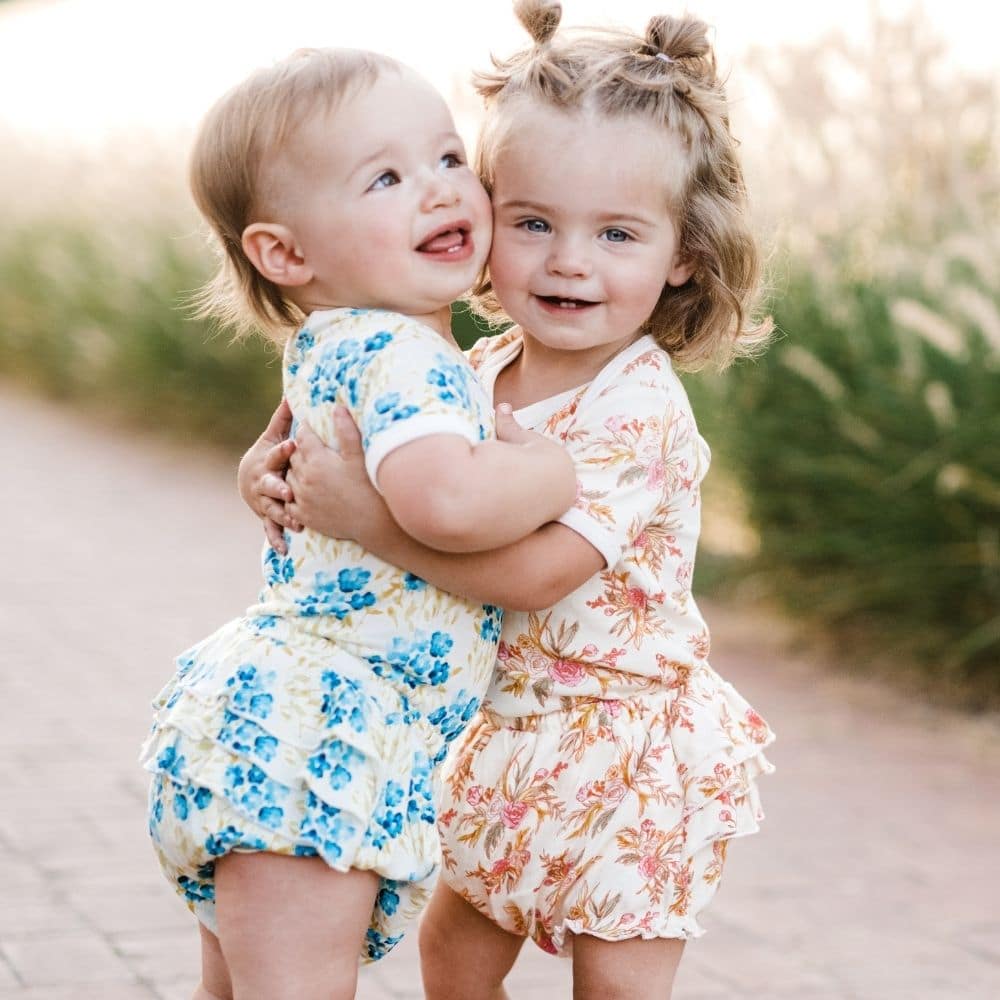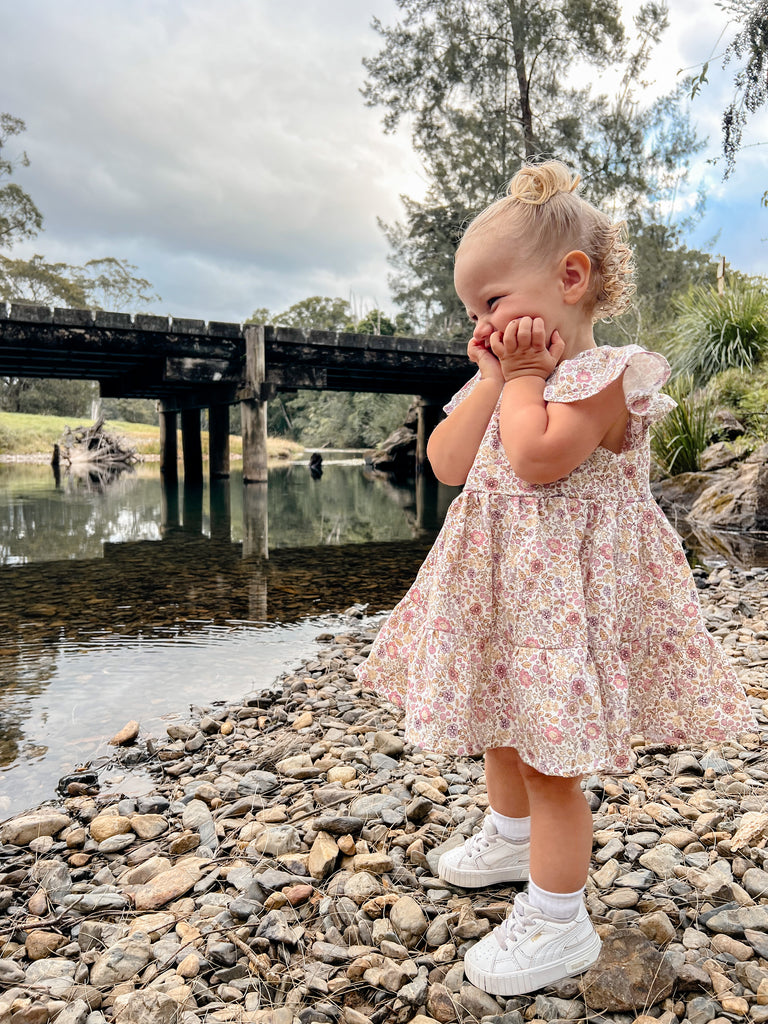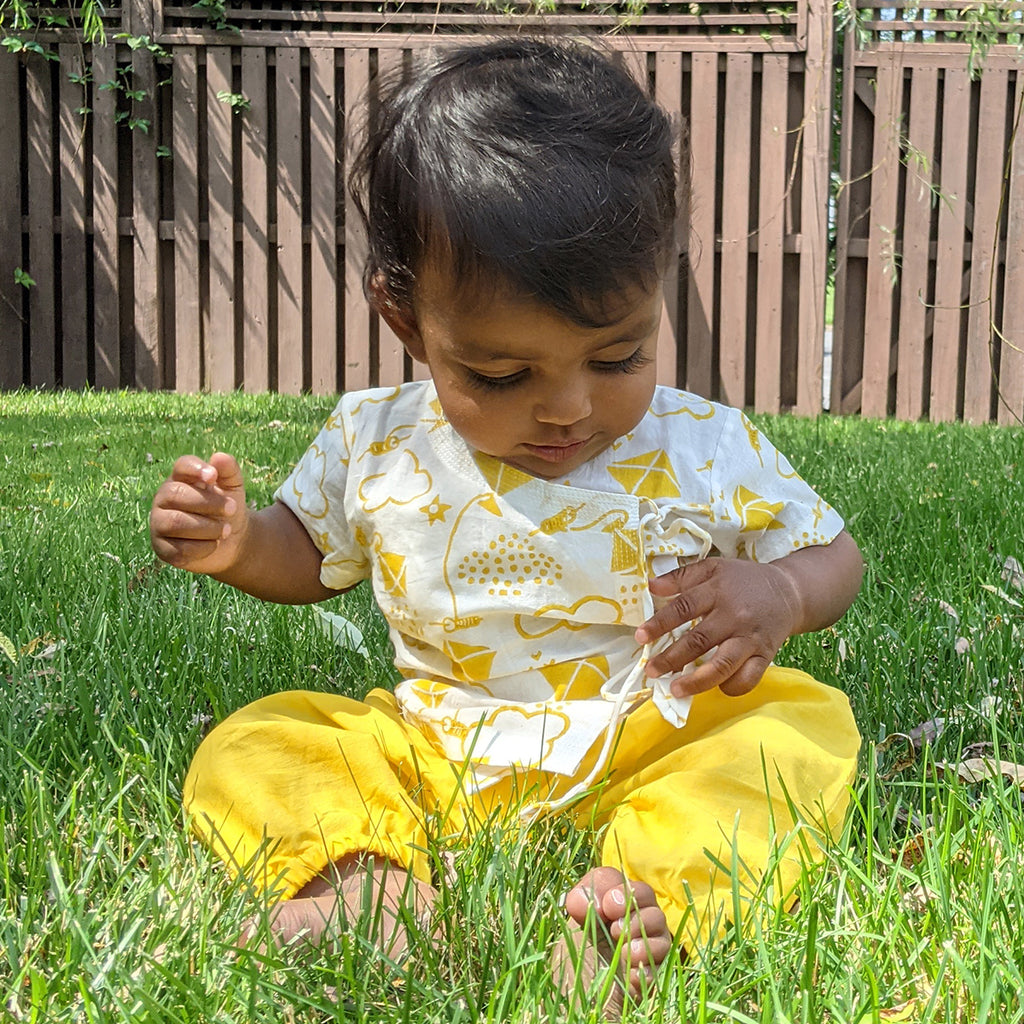
Part 1: Introduction to Bamboo Baby Clothing
Level 1: What is Bamboo Baby Clothing?
Bamboo baby clothing refers to garments made from bamboo fabric, which is derived from the bamboo plant. It is a sustainable and eco-friendly alternative to traditional fabrics like cotton and synthetic materials. Bamboo clothing is gaining popularity due to its numerous benefits for the environment and the baby.
Level 2: Why choose Bamboo Baby Clothing?
- Sustainable sourcing: Bamboo is a fast-growing plant that requires minimal water and resources to grow. It is one of the most sustainable and renewable resources available, making it an excellent choice for eco-conscious parents.
- Soft and gentle on baby’s skin: Bamboo fabric is incredibly soft and smooth, making it perfect for baby’s delicate skin. It has a natural sheen similar to silk, providing a luxurious feel for the little ones.
- Hypoallergenic and antibacterial properties: Bamboo fabric has natural properties that make it hypoallergenic and antibacterial. It is ideal for babies with sensitive skin or allergies as it reduces the risk of irritation and rashes.
- Temperature regulation: Bamboo clothing has excellent breathability and moisture-wicking properties, keeping the baby cool in hot weather and warm during colder months.
- UV protection: Bamboo fabric naturally blocks harmful UV rays, providing added protection for the baby’s sensitive skin.
- Biodegradable and recyclable: Unlike synthetic materials, bamboo fabric is biodegradable and can be recycled, reducing waste and environmental impact.
Part 2: Environmental Benefits of Bamboo Baby Clothing
Level 1: Reduced Environmental Impact Bamboo clothing offers several environmental benefits compared to traditional fabrics.
Level 2: Sustainable farming practices
- Rapid growth: Bamboo is one of the fastest-growing plants on Earth, with some species growing up to 3 feet per day. This rapid growth allows for quick and sustainable harvesting.
- Low water usage: Bamboo requires significantly less water compared to other crops like cotton. It can thrive in dry conditions and does not need extensive irrigation, reducing water consumption.
- Minimal pesticide and fertilizer use: Bamboo is naturally pest-resistant and requires little to no pesticides or fertilizers to grow, making it a more environmentally-friendly choice.
Part 3: Health Benefits of Bamboo Baby Clothing
Level 1: Baby’s Health and Well-being Bamboo baby clothing offers several health benefits for infants.
Level 2: Hypoallergenic and non-irritating
- Gentle on sensitive skin: Bamboo fabric is hypoallergenic and contains no harsh chemicals or irritants. It is ideal for babies with eczema, allergies, or skin sensitivities.
- Thermal regulation: Bamboo fabric has excellent insulation properties, allowing babies to stay comfortable in various weather conditions. It helps regulate body temperature and wicks away moisture, preventing overheating and promoting better sleep.
- Odor-resistant: Bamboo fabric naturally reduces odor-causing bacteria, keeping baby’s clothes fresh for longer periods. This is particularly beneficial for reducing odors from sweat and spit-up.
- Soft and comfortable: Bamboo fabric is incredibly soft, providing ultimate comfort for babies. It is gentle on delicate skin and doesn’t cause friction or irritation.
 Part 4: The Future of Bamboo Baby Clothing
Part 4: The Future of Bamboo Baby Clothing
Level 1: Growing Popularity and Innovation Bamboo baby clothing is becoming more popular, and the future holds exciting possibilities.
Level 2: Fashion-forward and versatile
- Increasing demand: As consumers become more environmentally conscious, the demand for sustainable baby clothing is on the rise. This trend is expected to continue, driving innovation in bamboo fabric manufacturing.
- Expanding product range: Bamboo baby clothing is no longer limited to basic essentials. Brands are introducing fashionable and stylish designs, making it a versatile choice for parents who want both functionality and aesthetics.
- Collaboration with other materials: Bamboo fabric can be blended with other eco-friendly materials like organic cotton or hemp, creating unique and sustainable fabric blends.
- Research and development: With growing interest in bamboo fabric, ongoing research and development is likely to improve the fabric’s properties further, such as increased durability and additional functionality.
Part 5: Care and Maintenance of Bamboo Baby Clothing
Level 1: Proper Care for Longevity Taking care of bamboo baby clothing ensures its longevity and continued benefits.
Level 2: Washing and Drying
- Gentle washing: Machine wash bamboo baby clothing on a gentle cycle using mild, eco-friendly detergent. Avoid using bleach or harsh chemicals that can damage the fabric.
- Temperature settings: Wash bamboo clothing in cold or warm water to maintain its softness and prevent shrinkage.
- Drying: Air-drying is the best option for bamboo clothing as it helps retain its shape and quality. If using a dryer, choose a low heat setting to prevent excessive shrinkage.
- Ironing: Bamboo fabric tends to wrinkle less than other materials, but if needed, use a low heat setting when ironing to avoid scorching or damaging the fabric.
Part 6: Buying Guide for Bamboo Baby Clothing
Level 1: Choosing the Right Bamboo Clothing Consider these factors when purchasing bamboo baby clothing.
Level 2: Organic and Certified
- Look for organic certification: Choose bamboo clothing that is certified organic, ensuring it has been produced without harmful chemicals or pesticides.
- Ethical production: Consider brands that follow fair trade practices and ethical production standards, ensuring the welfare of workers involved in the manufacturing process.
- Quality and durability: Check reviews and ratings to ensure the clothing is of high quality and durable, as this will ensure it lasts longer and reduces waste.
- Sizing and fit: Consider the sizing and fit of the clothing to ensure comfort for the baby. Some brands may run larger or smaller than average, so read sizing guides or customer reviews to make an informed decision.
- Variety and style: Look for brands that offer a wide range of styles, designs, and colors to suit your preferences and allow for versatility in your baby’s wardrobe.
Part 7: Addressing Common Concerns and Misconceptions
Chemical processing: Despite the misconception, bamboo fabric can be produced using both chemical and mechanical processes. However, the majority of bamboo clothing available today is made using the eco-friendly mechanical process, which involves crushing the bamboo plant and using natural enzymes to break it down into fibers. 2. Allergenic properties: Some individuals believe that bamboo fabric can cause allergic reactions, but this is rare. Bamboo fabric’s hypoallergenic properties make it a safe choice for babies with sensitive skin or allergies. 3. Environmental impact of processing: While some chemical processes can have negative environmental impacts, the mechanical process used to produce most bamboo fabric is environmentally friendly. It uses less water, energy, and chemicals compared to traditional fabric manufacturing methods.
Conclusion
Bamboo baby clothing offers numerous benefits for both the environment and the baby. Its sustainable sourcing, softness, hypoallergenic properties, temperature regulation, and UV protection make it an ideal choice for eco-conscious parents. Moreover, bamboo clothing reduces the environmental impact, promotes healthy skin, and guarantees a comfortable and safe experience for infants. With the increasing popularity and ongoing innovation, the future of bamboo baby clothing looks promising, offering stylish options while maintaining its eco-friendly properties.



